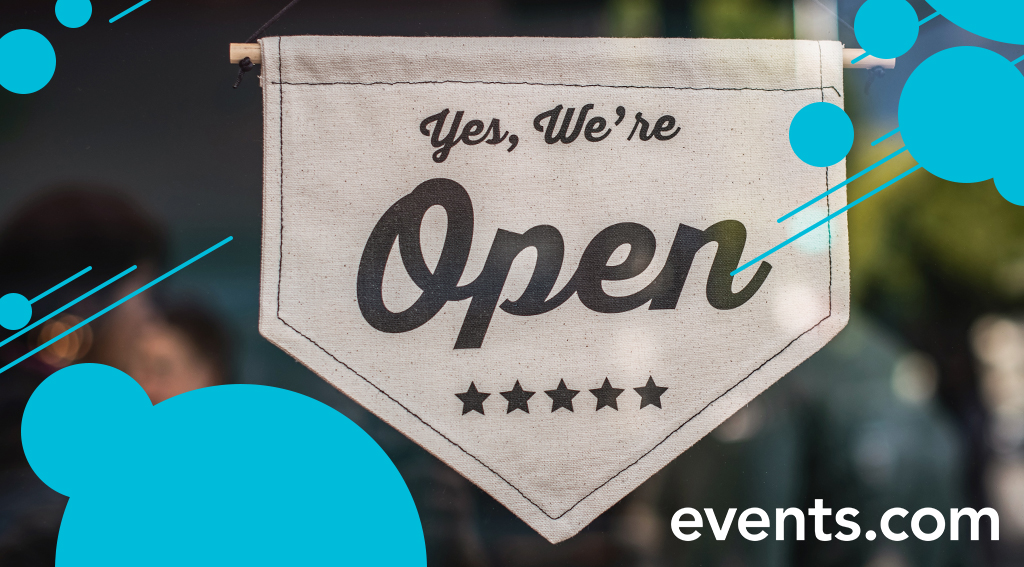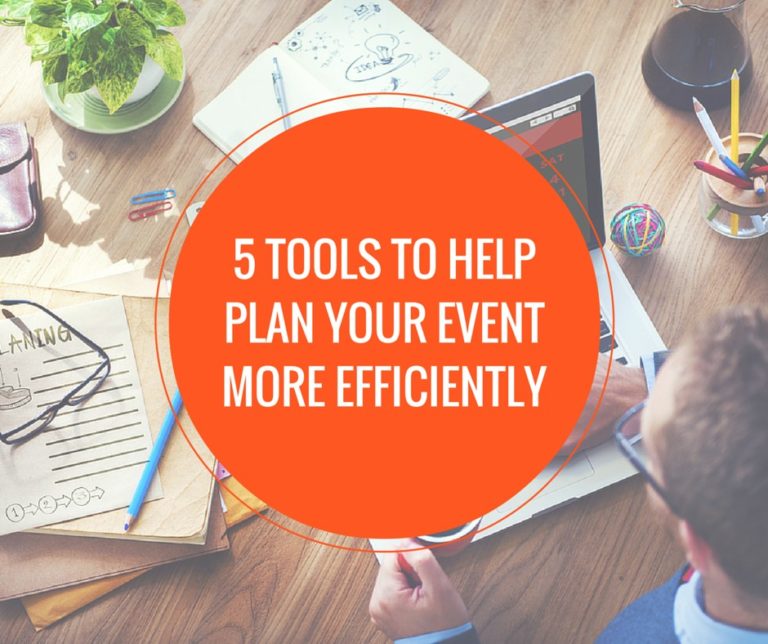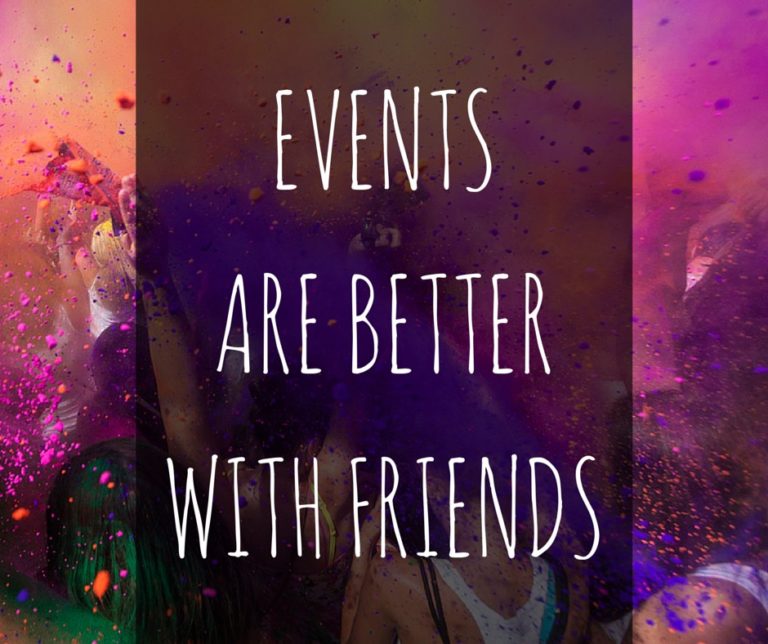Putting together an event is a lot of work. If you want to do so successfully, you will need to manage relationships not only with your vendors, but with existing and prospective sponsors as well.
Harnessing the power of local business sponsorships is one of the best ways for event managers to improve the quality of their events. This also helps build relationships with local sponsors that can result in further sponsorship opportunities in the future.
In this article, you’ll learn about the potential benefits of securing sponsorship deals for your events, and how to get local business sponsorships.
Why Get Sponsored at All?
If you’ve successfully organized one or more events in the past without event sponsors, you may be dubious about the value that event sponsorship can bring. Is it worth your time and energy to invest in finding potential sponsors?
There are numerous benefits associated with having your events sponsored. And building relationships with local organizations can have short-term and long-term impacts on current and future events you’re planning.
Building Brand Awareness and Strengthening Credibility
Whether you’re organizing an intimate school fundraiser or a large race, securing sponsorships can add credibility and help raise awareness about your event or organization.
When you partner with other brands or organizations with whom you align, you can help expand your customer base among like-minded individuals.
For example, if you’re putting on a wellness event and you partner with local wellness brands, you’ll be able to access their clientele, who you know are interested and invested in the content of your event. Seeking out sponsorships from organizations that have a positive impact and are known for their environmental, social, or other impacts can help tell your customers that you care about important issues.
When established brands that are trusted and respected sponsor your event, it offers credibility to your existing customer base. It also brings a new customer base demonstrating that your event and organization are trustworthy and taken seriously.
Reaching Your Fundraising Goals
Events, even small ones, can get very expensive very quickly. No matter the type of event you’re organizing, sponsorships help save you money and forge relationships with other brands and organizations who you can partner with over time.
Let’s assume, for instance, that you work for a nonprofit and you’re organizing an auction to raise money. Naturally, you will need to make a significant profit on the items and experiences you auction off. And one of the easiest ways to do this is to get sponsorships and donations. This allows you to auction off everything from a pair of headphones to a weekend getaway without spending a dime.
In exchange, the brands you partner with will build trust with your attendees and they will potentially be able to write it off as a charitable donation.
In addition, local businesses that do sponsorships can offer monetary donations and items to use at your event (like sound equipment, tables and chairs, food, etc.). This means you don’t have to budget to rent or buy these items.
Unearthing New Opportunities
Although learning how to secure sponsorships for an event can have a steep learning curve, it can also present tremendous opportunities for growth and relationship building.
Ideally, when you secure a sponsor for your event, they’re a brand you can continue to work with in the future. Whether you choose to partner with them the next time you host this event or for numerous other events throughout the year, connecting with local businesses can make a difference in the success of your event.
These businesses may also learn to think of you when hosting future events, which means a mutually supportive working relationship. In addition, if you manage to build relationships with local businesses while they’re still small, you will have an established relationship with them once they grow. This could translate to larger local sponsorships down the line.
How To Secure Local Business Sponsorships for an Event
Follow the steps outlined below to secure local business sponsorships for your next event.
Make a List of Potential Sponsors That Align With Your Event and Brand
Choosing the right sponsors to partnership is extremely important. It shapes your likelihood of having a sponsorship request approved, and it impacts customer reach.
Consider, for example, that you’re organizing a race. It wouldn’t make sense to send sponsorship letters to companies that have nothing to do with exercise. In this instance, it makes more sense to reach out to a local outdoor gear brand, an exercise apparel company, or a nearby physical therapy office. As opposed to querying a luxury fashion brand, a beauty brand, or a furniture store.
Seeking out sponsors that align with your event and brand will help improve your chances of accepting your sponsorship request because the brand will see value in supporting you.
Furthermore, when you build relationships with local sponsors who operate within the same industry as you, you can reach a broader audience to interact with your brand. This allows you to build credibility with your existing customer base.
This is certainly not to say that you should only seek partnerships with sponsors who offer products or services related to your event. If you’re organizing a concert, finding a local distillery to provide alcohol for the event is beneficial, even if the businesses are unrelated.
However, you should be looking for sponsors and donors interested in the promotional benefits of sponsoring your events, as you are likely only to have your event sponsored if it’s mutually beneficial.
Find the Right Person To Contact
Once you’ve created your list of potential sponsors, it’s time to reach out. Knowing who to contact within the organization is half the battle. The right person can approve your sponsorship request in minutes. But the wrong one can reject your request without even taking the time to look at your proposal.
If you have a connection within the organization, ask them to direct you to the company representative who would be the most beneficial. Otherwise, search the company’s website if they have an organizational chart or look on LinkedIn for individuals with titles like these:
- Titles with “brand” in the name (brand manager, brand developer)
- Public relations (PR)
- Sponsorship manager
- Titles with “community” in the name (community outreach, community manager)
- General manager
- Marketing
Craft a Sponsorship Proposal That Communicates Benefits and Incentives
Once you’ve connected with the right person, you’ll need to incentivize them to sponsor your event. Offer a sponsorship package that communicates why it will benefit their brand to sponsor you. In addition to offering perks like tickets to your event, show how their sponsorship can improve their business.
This can include pitches that focus on topics like the ones listed below:
- Helps with brand recognition and awareness
- Improves their public image
- Targets untapped markets
- Aligns with their target demographic
Present Data From Past Successful Events
Many sponsors will expect you to prove that sponsoring your event is a wise business decision. Therefore, you should be prepared to defend your request for sponsorship by showing value.
Have event data available when proposing your sponsorship request, such as:
- Attendee numbers
- Demographics on attendees
- Merchandise sales
- Satisfaction of previous attendees (if available)
Not only are these figures essential to incentivizing brands to sponsor your event. But they will help improve your credibility and ensure that brands (especially larger ones) take you seriously.
Don’t Forget To Follow Up
Following up is an essential step when reaching out to prospective sponsors. Think of it like you would a job interview. Basic manners dictate that when you take up someone’s time, you thank them afterward.
Following up will show that you take the sponsorship seriously, appreciate their consideration, and value their time. It will also give you the opportunity to provide any last-minute clarifications or offer any additional incentives.
Continue Building Relationships With Your Local Sponsors
Seeking out event sponsorships requires you to see the value in teamwork. An effective event sponsorship strategy includes managing existing relationships and building new ones.
As you grow, you can nurture the relationships you have with the first event sponsors you secured while adding new sponsors for each event.
Remember that you don’t need to be sponsored by the same brands at every event. Having a network of potential sponsors means you can reach out to different sponsors for different events, depending on which brands align with your current event.
Learn More About the Event.com Sponsorship Solution
Local businesses represent a wealth of opportunity when it comes to having your event sponsored. But securing event sponsorships can be a challenging and time-consuming process.
When you partner with Events.com, you’ll have access to sponsorship solutions that will make organizing your next event more manageable than ever. Solutions you’ll have access to include a personalized sponsor database, customizable proposals, and sponsorship letters.
For even more information about how to obtain event sponsors, download our online Guide to Event Sponsorship.






